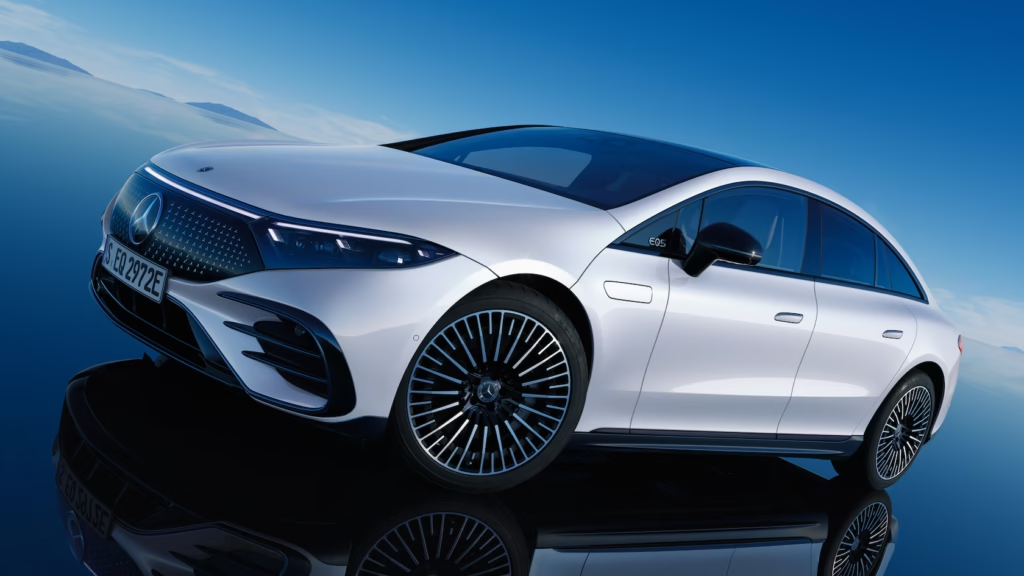Over the past few years, electric cars have been a desired vehicle by many consumers including environmentalists and lovers of technology. The same electric car newcomers need to make some assessments when making plans to buy their first electric car, so that the decision is compatible with their way of life, money and movement needs. Before you embrace electric mobility, here is a guide to help you make the right decision.
Table of Contents

1. Range and Driving Needs
High on the list of priorities when acquiring your first electric car is the distance that it can cover on a single charge. Today, the distance electric vehicles can travel is between 150 to 400 miles, depending on the model and their price segments. Here are some applicable pointers to help you determine the range you need:
Daily driving: In most circumstances, if your daily driving is limited, a normal range suffices. But for those who love long journeys, a high range ‘ electric car’s or a situation where sufficient charging coverage is available will be anticipated.
Climatic considerations: Keep in mind that extreme weather conditions can have negative impacts on the battery’s power efficiency hindering the range that the vehicle will have when used in the cold or hot climate.
2. Charging Infrastructure
Charging electric car is not the same as filling the gas tank, and thus the presence of charging alternatives is critical for EV adoption. Some of the charging types are as follows:
Home charging: The installation of a home charging station is the best option. Make sure that the home is suitable for a Level 2 charger as this will ensure that the electric vehicle is charged more quickly than a standard household outlet.
Public charging stations: Make it a habit to search for fast charging stations along the roads you frequently travel. Websites like PlugShare and ChargePoint have maps of charging stations and other details on the stations which are compatible with which cars.
3. Battery Life and Warranty
The battery serves as the heart of every electric car. Comprehending its lifespan and warranty can help save future costs. The following are the things which are to be kept in mind.
Battery degradation: With time, gradual loss of capacity is experienced in all EV batteries. Some of the electric cars have the option of replacing batteries while others may not require one even after ten years.
Warranty coverage: This is normally for 8 years or 100k miles whichever comes first. Most manufacturers offer such warranty. Make sure this is done before the purchase, as it helps in knowing that there is protection for the battery against failing too early.
4. Charging Speed and Time
Charging speed is one more key factor in the consideration of buying an electric car, which is quite essential especially when planning for a long haul trip or not able to have a charging facility at their home. Following are the various levels of charging:
Level 1 (120V): Level 1 uses the common 120V socket which is quite easily available in most locations; however, it may take nearly one day for the battery to reach full charge depending upon the storage capacity of the battery.
Level 2 (240V): Level 2 charging enhances the charging capability and without any great difficulty, it can fully charge the battery in a time span of 4-8 hours. This Level 2 charging is commonly used for home charging mounts.
DC Fast Charging: Perfect for a quick recharge and when it is not possible to have a long break in between trips, recharging time would be 80% in almost half an hour. It is worth nothing however, that a frequent use of fast charging modes does shorten the average battery’s life span.
5. Cost and Incentives
In most cases, an electric car costs more dollars at the beginning than a gasoline motor vehicle; however, the savings over a long time may justify the expense. Important factors may include:
Subsidies: Look for government programs, tax deductions, and community programs providing rebates for EV customers. People across different countries provide generous incentives to ease the burden of electric vehicle ownership.
Cost of usage: The overall expenditure on maintenance and fuel can see a dramatic drop through the utilisation of electric car. Overall, real experiences show that electric vehicles have fewer servicing and maintenance requirements than internal combustion engine vehicles due to the lesser number of moving components.
6. Vehicle Type and Size
Electric car now available in several options ranging from mini cars to bigger SUVs, therefore making it convenient to select one that fits your needs best:
Mini cars: If you operate in crowded places a small sized electric vehicle might be the most applicable due to its mobility and parking requirements.
Crossovers and SUVs: for households or people who need a little more space, big vehicles provide enough space as well as functionality.
Electric pickups: If a powerful vehicle is a requirement for the job you do, there are EV trucks that have great towing capabilities which are now being developed in multiple variants.
7. Performance and Driving Experience
An electric car drives differently and has its benefits such as a quiet drive, eliminates the need of manual gear shifting and accelerates smoothly. Some high-end technology comes along with electric vehicles too:
Instant Torque: right from its name, electric cars eliminates the delay in acceleration that makes the drive seamless.
Regenerative Braking: This function is standard in most electric car models and permits the vehicle to recuperate energy while it is used, thereby improving the overall efficiency and the distance it can travel.
Advanced tech features: Technology appears, from smartphone integration to self-driving features in many electric vehicles, which can attract those who love technology.
8. Environmental Impact
Eco-friendliness is one of the top considerations for buying an electric car. It significantly reduces air pollution and greenhouse gas release since EVs have zero emissions at the tailpipe. When purchasing, keep in mind:
Manufacturing footprint: Some manufacturers try to use eco-friend materials or processes which are less harmful to the environment. Looking into these aspects can make your purchase resonate well with the larger sustainability agenda.
Renewable charging: Utilizing solar panels or other renewable sources to power your electric car can minimize further its carbon footprint.
9. Total Ownership Cost vs. Traditional Cars
While fuel cars might be more economical when comparing sticker prices with electric car. Assess the following points:
Decreased fuel cost: Having an EV charging will be mostly cheaper than getting gas, more so if you can get lower tariffs.
Lower maintenance cost: An EV will remove the need for an oil change or transmission repair that are routine works which can end up costing a lot over the years.
Resale cost: As EV cars become more commonplace, their resale value will also increase especially for good performing battery models with a powerful brand behind it.
Conclusion
For many people, making the decision to purchase their first electric car is exhilarating but also life-altering. However, by evaluating parameters such as distance coverage, charging facilities, battery lifespan and, costs, one is able to select the option that best meets their requirements as well as their sustainability objectives. It is not simply transferring from conventional means of transport to electric, but a pledge to the cause of clean and pollution-free environment.
Adopting an electric vehicle is a long term financial and environmental return. Electric vehicles continue to grow and there is now an electric vehicle for every buyer in the car market. Don’t rush, consider your necessities carefully, and bring in the transformation towards the greener and sustainable life with ease.

